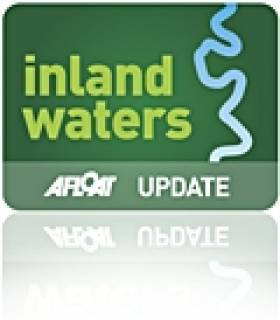Displaying items by tag: River Nier
Waterford Farmers Prosecuted Over In-Stream Works On River Nier
#InlandWaterways - Two Waterford farmers have been successfully prosecuted by Inland Fisheries Ireland (IFI) over unauthorised in-stream works on the River Nier, a stretch of water important to salmon numbers in the south-east.
At a sitting of the District Court held at Clonmel on Tuesday 15 January, Oliver O'Gorman and Michael O'Gorman - of separate addresses in Ballymacarbry, Co Waterford - were convicted by Judge Terence Finn and ordered to pay fines and costs.
The prosecution followed investigations into discolouration and turbidity detected in the main channel of the River Nier on the evening of Saturday 24 March 2012.
Patrick Kilfeather, senior fisheries environmental Officer with IFI, told Judge Finn it had been found that Oliver O'Gorman removed gravel from the Nier and used this in the construction of a roadway through his farm, while Michael O'Gorman had removed boulders and rocks from the river upstream to use in bank protection works on his farm.
Additionally, the court was told that Michael O'Gorman had dug out the bed of a tributary of the Nier, and that the tributary in question was a very important salmon producing water.
In reply to questions put to him by Peter T Reilly, solicitor for IFI, Kilfeather told the court that had IFI been approached by the farmers concerned, advice and guidance would have been provided and it would have been possible to undertake certain works under IFI supervision during the period from July to September.
Dolph McGrath, solicitor representing both defendants, entered a plea and submitted they were hard working young farmers who had learned an expensive lesson, and had not intentionally set out to cause environmental damage.
In passing judgement, Judge Finn noted that the works carried out had been ill-considered and ill-advised, adding that the defendants could have acquired the gravels and boulders they needed from a quarry as distinct from taking them from the river Nier.
He commented it was a pity the defendants had not sought advice from IFI and noted from Kilfeather's evidence that such advice and guidance would have been readily provided.
Michael O'Gorman was fined €1,000 and directed to pay legal costs of €671.75 and expenses of €760.97 to IFI. A second charge against him for works on the Nier tributary was marked proven and taken into account. Oliver O'Gorman was also fined €1,000 and directed to pay legal costs of €658.75 and expenses of €704.01.
Commenting on the circumstance of the prosecution, the regional director with Inland Fisheries Ireland said there is a general prohibition under the Fisheries Acts from interfering with river and stream habitat. In no circumstances is it permissible to remove materials from a river for use, as in this case, for construction purposes.
He said that IFI was seeking the assistance and co-operation of farmers and landowners, as the primary custodians of the natural environment, not to engage in works likely to have effects on the fisheries and aquatic environment. In this regard he acknowledged the many farmers and landowners who had and continue to make contact with IFI to ensure that works which they require to undertake can be done in an environmentally sustainable manner.





























































